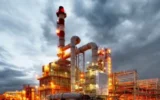
The Director of Assignment and Investor Services of the Petrochemical Special Economic Zone Organization announced 58 active projects in this zone and said: The annual production capacity of these projects reaches 7 million 96 thousand tons per year, which play an important role in the development of the country's petrochemical industry value chain.
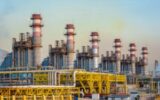
Mobin Energy Persian Gulf Company, as one of the largest centralized utility units in the world, with an area of over 88 hectares in Phase One of the South Pars Special Economic Zone in Assaluyeh, plays a key role in providing energy and infrastructure services for petrochemical complexes.

The CEO of Sepehr Energy Holding attended the head office of Sabalan Petrochemical and held a meeting with the CEO, senior managers, and heads of units to review the latest status of projects, challenges, and upcoming strategies.

The CEO of the National Petrochemical Industries Company announced the implementation of 100 percent of the goals of the first year of the Seventh Development Plan in the petrochemical industry and emphasized the need for stricter inspections in the field of safety and improving process safety.
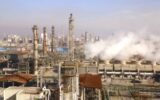
Fajr Energy Persian Gulf Company (formerly Fajr Petrochemical) was established in the 1970s with the aim of providing utilities to companies in the Special Economic Zone in Bandar Imam Khomeini and became the first centralized utility company in the country. The company plays an important role in transmitting electricity, water, liquid oxygen, and steam to its neighboring petrochemical companies.

The CEO of Hengam Petrochemical announced that the company's ammonia unit has reached full capacity for the first time since its launch, and the urea unit will also enter production by the end of December.

Alireza Mahdavi, CEO of Bushehr Petrochemical Company, announced the start of the launch of Bushehr Petrochemical Company's olefin unit.
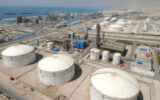
Parsian Oil and Gas Petrochemical Holding is one of the major players in the country's petrochemical industry, which, with about 20 percent of Iran's production capacity and complexes such as Pardis and Zagros, has earned the title of the country's largest urea producer and one of the most important methanol producers in the Middle East.
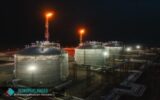
The turning point of this period is the launch of the center's first processing row (Row C) with a capacity of 80,000 barrels per day, which sends the produced oil directly to the West Karun pipeline.
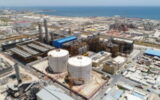
Petrofarhang Holding, the economic arm of the Farhangian Reserve Fund, has been able to consolidate its position as one of the main players in Iran's petrochemical industry in recent years, focusing on methanol production and developing petrochemical projects, and has emerged from losses with significant growth in production and profitability.










